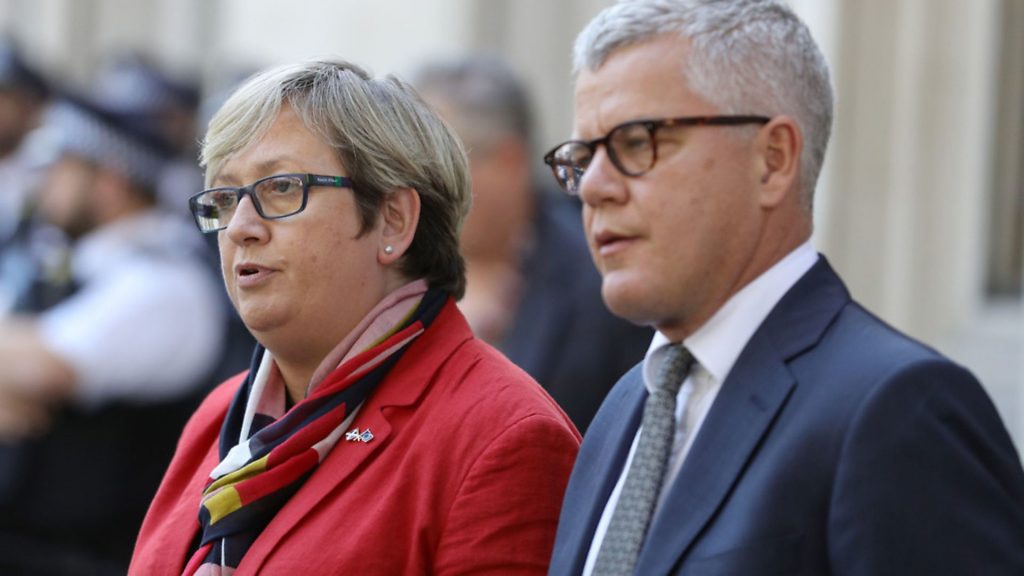
The government has submitted evidence to Scotland’s highest civil court claiming the prime minister will comply with MP’s demands to send a letter requesting a Brexit extension if a deal is not agreed by October 19th.

Documents submitted to the Court of Session on behalf of Boris Johnson were read out on Friday, in which he makes it clear he will not attempt to frustrate the so-called Benn act.
The legislation, passed by Westminster last month, requires the prime minister to ask the EU for a Brexit extension to January 31 if Parliament does not agree to any withdrawal deal Number 10 may come back with by October 19.
Andrew Webster QC, representing the UK government, said the documents are a “clear statement” as to what the prime minister will do.
Legal action launched at the Outer House of the court seeks to create an order which would force Johnson to send the letter and prohibits him from frustrating the act’s purpose.
This includes banning him from asking EU member states to deny the letter’s request or by sending an additional letter which contradicts it.
Webster said there is no need for an order to be made forcing a letter to be sent, because the court has it on record it will be done.
He said: “What we have is a clear statement on behalf of the prime minister and government as to what it will do in respect to the requirements of the 2019 act.
“They have been put on record so there can be no doubt.”
He argued a court order would tie the PM’s hands while negotiating, but that Johnson would abide by the Benn act anyway and not attempt to “frustrate” its intention.
Webster claimed ministers had been “taking a line” which was not inconsistent with the government’s desire to achieve a result – “we can leave and we will leave on October 31”.
He warned a court order could “ruin” the government’s negotiation position with the EU, adding: “It would be quite inappropriate for the court to enter the negotiating arena, by saying what can be done.”
Aidan O’Neill QC, representing the campaigners behind the legal action, claimed Johnson’s previous statements go against what he has said to the court through the documents.
He referred to promises made by the prime minister that he would rather be “dead in a ditch” than send a letter requesting an extension, and that the UK will leave on October 31 “do or die”.
O’Neill said: “We can’t trust this government, in light of statements it has made, that it will comply with the law.”
The trio behind the court action – businessman Vince Dale, SNP MP Joanna Cherry QC and Jolyon Maugham QC – are seeking an order to ensure Johnson requests an extension if he refuses to abide by the terms of the Benn Act.
Anna Soubry said the Brexit delay revelation in court documents show the untrustworthiness of Boris Johnson.
The Independent Group for Change leader told PA: “I just think this is further evidence that you can’t trust a single word that this prime minister says.
“It’s really serious because he obviously said he would rather die in a ditch or some silliness than hand over this letter, whereas these papers prove he is absolutely going to deliver that letter.
“And he also anticipates, in my view, that we won’t have a deal on October 19 and now this is really serious stuff.
“You have to say to yourself, ‘What can you believe from this man?’ and I think it casts real doubt on whether he has any intention whatsoever to get a deal with European Union by the 19th.”
Meanwhile, a judge at the court’s Inner House has said it would be “unprecedented” for an official to exercise powers to sign an Article 50 extension on behalf of Johnson.
It heard the unique power of nobile officium – which would allow a court official to sign the letter – has never been used over a prime minister.
Lord Drummond Young said: “In the circumstances of this case, it is unprecedented. There’s a question of competence.”
The three judges – Lord Drummond Young, Lord Menzies and Lord Turnbull – set the date for the hearing on this aspect of the case for Tuesday.
Warning: Illegal string offset 'link_id' in /mnt/storage/stage/www/wp-includes/bookmark.php on line 357
Notice: Trying to get property 'link_id' of non-object in /mnt/storage/stage/www/wp-includes/bookmark.php on line 37






